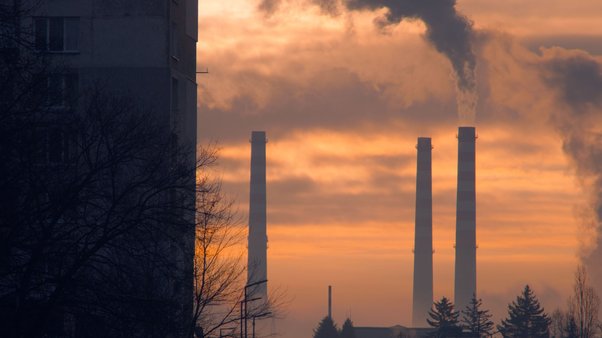HSBC and Goldman Sachs are among the key western bankers for Colonel Gaddafi’s regime, a 2010 document leaked to Global Witness appears to show.
Update: Global Witness publishes the Libyan Investment Authority financial position as of September 2010.
The document details the whereabouts of state oil revenues. However the Libyan people could not know where it was invested or how much it was, because banks have no obligation to disclose state assets they hold. Global Witness is now calling for new laws requiring banks and investment funds to disclose all state funds that they manage.
Global Witness asked both banks to confirm that they held funds for the state-owned Libyan Investment Authority, and whether they still hold them. They both refused, with HSBC citing client confidentiality. Numerous other banks and financial firms are listed including Societe Generale, UniCredit and the Arab Banking Corporation.
“It is completely absurd that banks like HSBC and Goldman Sachs can hide behind customer confidentiality in a case like this. These are state accounts, so the customer is effectively the Libyan people and these banks are withholding vital information from them,” said Charmian Gooch, director of Global Witness.
The Gaddafi family has significant personal control over the state funds invested in the Libyan Investment Authority. According to the Prosecutor of the International Criminal Court, “Gaddafi makes no distinction between his personal assets and the resources of the country.”
On this basis, it is essential for banking regulators to investigate whether these banks have done enough to ensure that state funds have not been diverted to the Gaddafi family’s personal benefit.
Global Witness has been leaked a draft presentation that appears to show the investment position for the Libyan Investment Authority (LIA) as of 30 June 2010, which stood at $53 billion. The information shows the diversity of Libyan assets held by major financial institutions:
- HSBC holds $292.69 million across ten accounts and Goldman Sachs has $43 million in three accounts. The funds are in U.S. dollars, British pounds, Swiss Francs, Euros and Canadian dollars.
- A much larger portion of the LIA’s deposits – $19 billion – are held in Libyan and Middle Eastern banks, including the Central Bank of Libya, the Arab Banking Corporation and the British Arab Commercial Bank.
- Almost $4 billion of the LIA’s funds are held in structured products with banks, hedge funds and private firms such as Societe Generale ($1 billion), JP Morgan ($171 million) and OCH-ZIFF ($329 million).
- The LIA owns billions of dollars of shares in household name companies such as General Electric, BP, Vivendi and Deutsche Telekom.
Global Witness believes there are two actions required from governments, beyond the sanctions that have already been imposed.
The first is that banks and investment houses must be required by law to disclose state funds that they manage. This would cost nothing and would allow citizens to see that state revenue is not being stolen by corrupt leaders. This fits a growing international norm on transparency of national assets. Oil and mining companies are now required, as a condition of listing on the New York Stock Exchange, to disclose payments they make to governments, allowing people of natural-resource rich states to know what their government is earning.
The second is that banking regulators must do a thorough investigation to ensure that banks holding Libya’s state funds have done appropriate checks – known as due diligence – to prevent transfers from state funds to accounts personally controlled by Gaddafi and his cronies.
“We are calling on others with additional information to go public on Libya’s other assets too or to tell us where to find them. It’s the money of the Libyan people and they deserve to know where it is,” said Ms. Gooch.
HSBC said that it had strong anti-money laundering and anti-corruption procedures in place across all of its businesses.
Notes to editors:
- HSBC’s U.S. division is currently under investigation for possible violations of anti-money laundering rules. Media reports have suggested that HSBC may be fined up to $1billion for not doing enough to curb the flow of dirty money.
- In a dictatorship where one individual, or a small cabal, exercises almost complete power over the state, there is a very thin dividing line between state and personal investments. Funds may look like they belong to the state but are actually under the effective personal control of a ruler who has captured the state.
- In the report Undue Diligence we revealed how $3 billion of Turkmenistan’s gas income was at Deutsche Bank in Frankfurt under the effective personal control of then-president Niyazov. Deutsche Bank and the German regulator, BaFin, brushed off our concerns saying these were ‘state accounts’. However we had been told by a former chairman of the Central Bank that this money was treated by Niyazov as his ‘personal pocket money’.
- Global Witness is also calling for:
- national registries that list the ultimate owner or controller of companies and trusts. Corrupt politicians hide their identity, and therefore their assets, behind complex webs of front companies and legal structures. This can make it very difficult for banks, or law enforcement, to find out who actually controls assets.
- if a bank cannot get its senior politician customers to explain their wealth, then it should turn down the money. Senior officials should be able to explain how their assets were earned legitimately, especially if there is a significant difference between their official salary and their actual wealth. If they cannot explain there should be a presumption that that their funds are the proceeds of corruption. This concept of “illicit enrichment” is already recognised in international treaties such as the United Nations and the Inter American conventions against corruption.
Download: Libyan Investment Authority, as of June 2010
Download Resource
